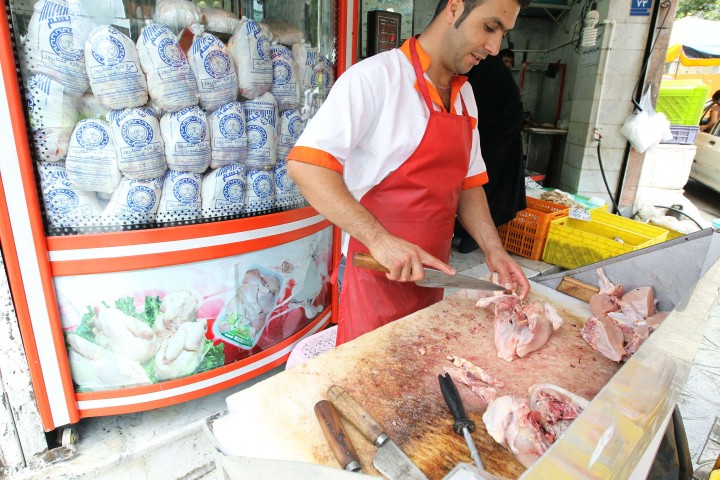DAMASCUS: International envoy Kofi Annan urged Syria’s President Bashar Al-Assad to immediately implement a ceasefire, as fighting raged Friday even after the embattled leader said he had accepted the peace plan.
UN-Arab League peace broker Annan made the appeal as monitors said shells rained down on Homs, a main rebel bastion which has been the focus of much of Assad’s year-long crackdown on anti-regime protests.
Activists, meanwhile, appealed for more mass demonstrations after the weekly Friday prayers to denounce Arab states for “abandoning” protesters by not backing calls to send arms to rebels fighting Assad’s forces.
Syria’s state-run SANA agency said on Thursday that “President Assad… has informed Annan that Syria approves the plan (the envoy) submitted but had made remarks about it.”
Assad would “spare no effort” for the success of Annan’s six-point plan but said the proposal would only work if “terrorist acts” by foreign powers stopped.
The fighting continued on Friday, however, according to monitors and activists.
Two people were killed near Bsas village, in Homs province, when the car in which they were travelling was fired upon, said the Syrian Observatory for Human Rights.
Before dawn, fighting broke out between the armed forces and rebel fighters in the towns of Harasta and Irbin, in Damascus province, after insurgents fired rocket-propelled grenades at a security post, it said.
Fierce fighting was also reported in the provinces of Hama, in central Syria, and Deir Ezzor in the east, said the Local Coordination Committees activist group.
Annan’s spokesman later issued the appeal for Assad to end the crackdown, which the UN estimates has seen more than 9,000 people killed in the past year.
“We expect him to implement this plan immediately. Clearly we have not seen a cessation of hostilities on the ground. This is our great concern,” the spokesman said in Geneva, adding the “deadline is now” for Assad’s regime to end all violence.
The plan calls for a commitment to stop all armed violence, a daily two-hour humanitarian ceasefire, media access to all areas affected by the fighting, an inclusive Syrian-led political process, a right to demonstrate, and release of arbitrarily detained people.
“I can’t tell you what the next steps will be if they don’t stop now,” Annan’s spokesman said, adding however that Annan was due to brief the UN Security Council on Monday and “we will take it from there.”
Annan is also working to convince the Syrian opposition to “lay down their arms and start talking,” he said.
Internet-based activist group The Syrian Revolution 2011, one of the main motors of the uprising, called for people to protest Friday against the Arab world’s inaction.
“The Muslims and the Arabs have abandoned us… but God is with us… and our determination will carry us to victory,” the group said on Facebook.
An Arab League summit in Baghdad on Thursday called for an end to the Syrian crackdown, for the opposition to unite and for parties to the conflict to launch a “serious national dialogue.”
The opposition had urged a harsher statement backing hardliners Qatar and Saudi Arabia, who have called for Assad to step down and for rebels opposing his regime to be supplied with arms.
But Iraqi Prime Minister Nuri Al-Maliki said that giving weapons to either side “will lead to a regional and international proxy war in Syria.”
In response, Syrian activists blocked a street and burned tyres late Thursday in Damascus to protest the “failure of the Arab League,” according to a video posted online.
US Secretary of State Hillary Clinton arrived Friday in Saudi Arabia where she is scheduled to hold talks with Saudi King Abdullah in a bid to crank up pressure on Assad.
Clinton is due to travel to Istanbul for a meeting of the “Friends of Syria” group on Sunday.
“The main objective of this conference is to increase the pressure on the Syrian regime to end the bloody repression,” a Turkish official said.
Turkey, Syria’s northern neighbour, has been a vocal critic of Assad’s deadly crackdown.
Prime Minister Recep Tayyip Erdogan said on a visit to Tehran that Syria should heed the will of its people by implementing political reforms and allowing free elections.
“The Syrian regime should be receptive to the will of its people, who want elections and democracy,” the Turkish leader said, according to an interview aired on Iranian state television late Thursday.
“If (President) Bashar Al-Assad is not afraid, and is confident about his regime, he should allow the formation of new (political) parties,” Erdogan said.
Assad’s Baath party controls political life in Syria, which many fear is on the verge of civil war.


